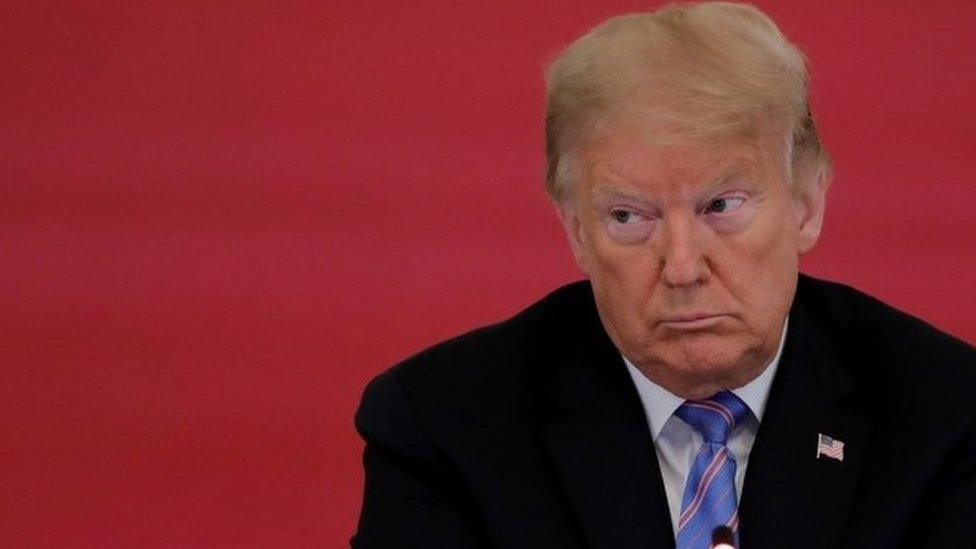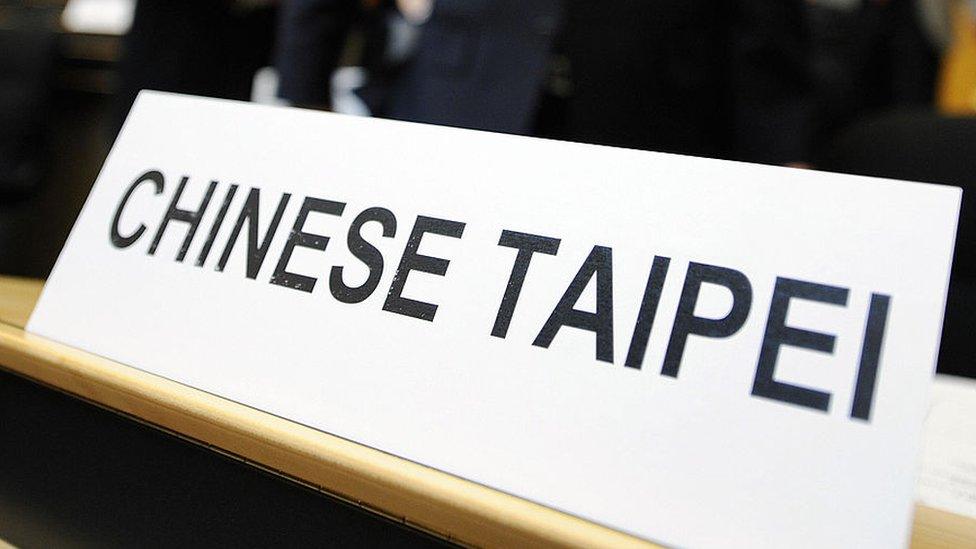Coronavirus: Trump moves to pull US out of World Health Organization
- Published

Donald Trump has accused the WHO of being under China's control
President Donald Trump has formally moved to withdraw the US from the World Health Organization (WHO).
The president had made his intentions clear in late May, accusing the WHO of being under China's control in the wake of the coronavirus pandemic.
Despite calls from the EU and others, he said he would pull out of the UN agency and redirect funds elsewhere.
He has now notified the UN and Congress of his intentions, although the process could take at least a year.
Stéphane Dujarric, spokesman for the UN secretary-general, confirmed the US had notified it of its withdrawal, effective as of 6 July 2021.
Senator Robert Menendez, the leading Democrat on the Foreign Relations Committee, also wrote on Twitter, external: "Congress received notification that POTUS officially withdrew the US from the WHO in the midst of a pandemic.
"It leaves Americans sick and America alone."
A senior US administration official told CBS News that Washington had detailed the reforms that it wanted the WHO to make and engaged with it directly, but that the WHO had refused to act.
"Because they have failed to make the requested and greatly needed reforms, we will be today terminating our relationship," the official was quoted as saying.
Joe Biden, who will challenge Donald Trump in the November presidential election, tweeted, external: "On my first day as President, I will rejoin the WHO and restore our leadership on the world stage."
The US is the global health agency's largest single contributor, providing more than $400m (£324m; €360m) in 2019, around 15% of its total budget.
Under a Congress resolution in 1948, the US can withdraw but must give a year's notice and should pay outstanding fees, although it is unclear where Mr Trump stands on that. Mr Dujarric stressed that those conditions should be met.
The withdrawal will call into question the WHO's financial viability and the future of its many programmes promoting healthcare and tackling disease.
What has Mr Trump said about the WHO?
He first announced in April that he was going to halt US funding for the WHO unless it undertook "substantive improvements" within 30 days.
Then in late May he said: "We will be terminating our relationship with the World Health Organization and directing those funds" to other global public health charities.
Mr Trump has repeatedly criticised China's early handling of the outbreak
"The world is now suffering as a result of the malfeasance of the Chinese government," he said, adding that China had "instigated a global pandemic".
The president accused China of pressurising the WHO to "mislead the world" about the virus, without giving evidence for his allegations.
"China has total control over the World Health Organization," the president said.
Other countries, including Germany and the UK, have said they have no intention of withdrawing funding from the WHO, which is co-ordinating a global initiative to develop a vaccine against Covid-19

What is the WHO - and who funds it?
Founded in 1948 and based in Geneva, Switzerland, it is the UN agency responsible for global public health
Has 194 member states, and aims to "promote health, keep the world safe and serve the vulnerable"
Involved in vaccination campaigns, health emergencies and supporting countries in primary care
Funded by a combination of members' fees based on wealth and population and voluntary contributions


A SIMPLE GUIDE: How do I protect myself?
HOPE AND LOSS: Your coronavirus stories
VIDEO: The 20-second hand wash

- Published24 March 2020
- Published17 May 2020
